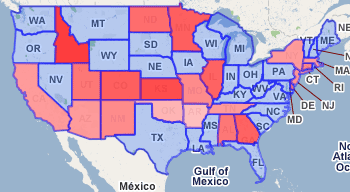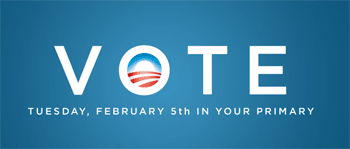|
My
ongoing rants about iTunes may be
getting old,
but I continue them because Apple has a reputation for well
designed software. The truth is a lot of
their software does not work particularly well, particularly on
Windows.
Today's fiasco was when I plugged my iPhone in to charge the battery. Only it didn't charge. Why? I was in a hurry, so I didn't wait for 30 seconds for iTunes to start up and didn't notice that it wanted an upgrade. Which left the phone mid-sync and some stupid feature in the iPhone means it didn't actually charge the battery while waiting for me to click a button on the computer at the other end of the charging cable. Nice engineering, guys. I approved the update. 65 megs of download without a functioning progress bar and the upload process stole keyboard focus from my other apps three times. My desktop reloaded several times too, and along the way iTunes once again stole my .mp3 association and littered my desktop and launch bar with QuickTime advertisements. Then it demanded a reboot, which I refused. The iPhone upgrade failed with an "error -50", whatever that might mean. It worked the second time, although the phone was deactivated for about a minute with no useful warning. The iPhone has a terrible user experience on the Windows desktop. It's embarassing. And because the iPhone is a closed environment, I don't have any alternative. Apple's linkage between products is the sort of thing that got Microsoft in trouble. "Conservative" is a relative thing. The Economist is a specifically European form of conservatism, one where the Texas death penalty gets special attention, Barack Obama has already won the nomination, and industry abuses in California are called out. I particularly appreciate the international viewpoint. So much better coverage of world affairs than American news outlets. I feel like I understand something about what's going on in Kenya, Zimbabwe, Japan, Brazil, and more generally internationally. And the outsider view of US politics is interesting too, from election coverage to a sort of direct assessment of American wiretapping politics. It also helps that it's a weekly magazine rather than a daily, the stories are a bit more thoughtful. I read the New York Times for years. It's an excellent paper but after the Iraq war runup disaster I lost faith in their editorial board. The recently bungled McCain story doesn't help anything. I still read the local paper, but it's become a joke. I'm finding I don't quite finish one copy of The Economist before the next shows up, and that's just about enough weekly news for me.
Perpetually hopeless candidate Ralph Nader is entering the presidential
election. All the Democrats still smarting from having the Florida
vote stolen from them in 2000 are pissed. With some reason.
But the presidential election is months away; we still have a primary to finish. And I'm thinking Nader's threat may help Obama. If Clinton gets the nomination, a lot of hard-core liberals are going to be tempted to vote for Nader. By contrast, I think Obama is progressive enough that left-leaning Democrats will not be tempted by Nader. The threat of a Nader spoiler becomes particularly strong if Clinton wins the nomination via backroom politicking and dirty tricks. Maybe the threat of a split liberal vote will be enough to keep the Clinton people from doing something awful like getting Michigan and Florida's improper elections to count.
During the primary a couple of weeks ago
Robot Hillary Clinton
called me at home twice to ask me to vote for her. I go through
a fair amount of trouble and expense to avoid unsolicited calls at
home and so Robot Hillary Clinton was not very persuasive.
The Do Not Call registry does not stop calls for political campaigns. But in California robotic calls are illegal. A "live" person must come on the line before the recording to identify the nature of the call and the organization behind it. The recipient of the call must consent to allowing the recording to be played.I wasn't angry enough at Robot Hillary Clinton to do anything about her illegal calls. But today the evil fucks behind ProtectMarriage.com illegally robo-called me. From a fake caller ID of "800 Services" 800-851-4642. Not only did they disturb my peace at home, they did so asking me to support their twisted religion-branded hatred of me and my family. So now I'm looking to see how I can help the law be enforced. I've already filed my PUC complaint, but angrily pressing the "Submit Form" button doesn't seem like enough. Any ideas?  I got a new toy today, a Sonos
music system. It's a music player like my beloved Squeezebox, an audio component
that turns network into music by playing MP3s off a server somewhere.
But unlike the Squeezebox, the Sonos is designed for multi-zone audio
and the components are amplified.
I got a new toy today, a Sonos
music system. It's a music player like my beloved Squeezebox, an audio component
that turns network into music by playing MP3s off a server somewhere.
But unlike the Squeezebox, the Sonos is designed for multi-zone audio
and the components are amplified.The user experience so far is beautiful, as clean to use as an iPhone. The centerpiece of the Sonos system is the controller, a large remote control with a bright LCD screen and a few simple control buttons. You use the controller to choose which music you want to play in which zone. The UI is good; intuitive and nice features like album cover art. You can try a Flash demo; look for the "Click Here to Launch" box on the left. The controller tells the Zone Players to play music. The players have no significant UI of their own, they're just boxes that take power and ethernet or wifi in and deliver audio out. Output options are line-out, digital, and amplified. The integrated amp is the killer feature for me in the Sonos and what sets it apart from the Squeezebox. Behind the scenes everything's working over wireless network. Music is pulled off of a NAS; I'm using Samba on a Linux box. There's also a good browser for Internet radio stations and various music services like Napster and Rhapsody. Not iTunes, tellingly. I just got the Sonos today so there's lots to tinker with still. But out of the box things were working in 15 minutes. Great unboxing experience, simple setup, the only wrinkle was getting my stupid Samba server to cooperate. My only caveat so far is the price; the starter bundle is $1000 for a two zone system. That's a lot, but it's a fair price for an amplified multizone system with a great UI. But if your needs are simpler then a Squeezebox or iPhone dock may make more sense.
Many thanks to Lance, my A/V system designer, for
encouraging me to get Sonos. If you want to build a new A/V system in
the Bay Area and need a consultant, drop me a note for a referral.
Ken and I were talking about the origin of the word
discombobulated
yesterday. "dis" and "com" are combining forms in English, but there's
certainly no root verb bobulate or combobulate.
Random House, American Heritage, and Webster all have it as an American coinage with dates varying from 1825 to 1916. Supposedly a fanciful play on the word "discomfort" or "discompose". Other variants show up, too: discombobricate, discombobberate, or a recent variant discomboobulate. But there's a wholely different theory which I first found on a MySpace profile, that discombobulate is connected to the Italian word scombussolare. That Italian verb has roughly the same meaning as discombobulate and is derived from the word bussola, compass, as in "lose one's compass bearing". Supposedly scombussolare is a 17th centuary Italian word, but alas I don't have any more authoritative reference than a forum thread. And how do we get to discombobulate with the extra negative prefix? There's something sinful about pretending to do this kind of research solely on the Internet, when all the relevant sources are over a hundred years old.  Netflix announced
today that they're going to stop stocking HD-DVD and will
exclusively stock Blu-ray. That's it, the stupid format war is over.
Netflix announced
today that they're going to stop stocking HD-DVD and will
exclusively stock Blu-ray. That's it, the stupid format war is over.
I've been having a lot of fun playing the racing / car crashing game
Burnout:
Paradise. Well tuned racing, amazing car crash
simulations, and a rich open city to drive around in. A city with lots and lots of
advertising.
 What's amazing is the ads work. They're not offensive, they decorate the city appropriately. There's enough variety and turnover that the ads seem fresh. Amusing fake ads for "Good Kid Jellybeans" and "Rayfield Hotels" liven things up and fill the unsold inventory. And the ads are an interactive, integrated part of the world; you crash into a lot of Diesel cars on your way to smashing into billboards (albeit unbranded ones). The only ads that look sad are the drivable cars; you can spot the douche in the online game because he's the one that shows up in the Walmart-branded Formula One car. I'd love to know more about the economics of in-game ads. Burnout's ads come from IGA Worldwide; other online ad players are Microsoft (via aquiring Massive) and Google (via aquiring Adscape Media). So far all the game ads I've seen are branding, not lead generation. But what a brand platform! Captive users interacting with the ads, online updates both to monitor brand penetration and to sell new ads over time, lots of creative potential. The big wrinkle is that only some small fraction of games can accomodate brand ads. I'd hate to see game publishers stop developing fantasy RPGs because they can't work in Burger King advertising.
I hate the coverage of the Super Tuesday results. We get stupid orange/purple
maps showing who won the majority, completely obscuring the size of
the majority, the number of delegates, or the number of people who
voted. Inspired by Robert
Venderbei's red/blue maps I tried to do a better choropleth map.
Above is my work-in-progress. The more red the state, the more of the
vote Obama got. You can view a live
map, also a map of percent
of delegates. According to NPR, Obama got fewer
delegates than votes.
This visualization is not very useful, honestly, I don't like the constraints of the map drawing tool I'm using. Can anyone suggest better simple software for drawing coloured US states? Then again geography may not be the right foil; delegates or popular vote is more important than location. I didn't triple-check that the data is accurate. Sources:
Update: see below for a major correction.
If Yahoo agrees to the deal with Microsoft, it will be a shotgun marriage, but it will be Google holding the shotgun. —BBCAstonishing offer from Microsoft for Yahoo today. Just revel in the number for a moment: $44.6 billion half cash, 62% premium. That's a lot of cash. The Yahoo offer has to be considered in the context of Microsoft's offer to aquire Fast Search. Who is Fast? At one time there were just a few real search engines: Inktomi, Altavista, Fast, and Google. Yahoo bought Inktomi and Altavista, digested a couple of years, and narrowed the search market to Yahoo vs. Google. Fast was still around with good technology and brilliant employees but not much mindshare. At the same time Yahoo was consolidating Microsoft started developing their own search engine. With mixed results; decent technology, no users. Microsoft buying Fast in January was both an admission of their technology limitations and a very shrewd way to pick up a lot of search engine engineers. Now if they buy Yahoo they get the users they need to make their search engine a success, not to mention another group of search engineers, a sophisticated online ad system, and lots of paying advertisers. If Microsoft succeeds in buying Yahoo it will turn the game from Yahoo vs. Google to Microsoft vs. Google. Will they succeed? I don't know, but it's the kind of bold move they have to try. Vista is failing, Office is getting serious online app competition, Microsoft understands their shrinkwrap business is slowly fading. Ray Ozzie is there to lead the company to online apps and search is the Start button for the Web. Buying Yahoo would be a very smart move for Microsoft at almost any price. Correction: Half the premise of my blog post is wrong. A
former Google colleague gently reminded me that the Fast Microsoft
bought is Fast enterprise search, not web search. The web search side of Fast had
been bought by Overture (and then Yahoo) several years ago. No doubt
there's still smart people at Fast, but the acquisition isn't the
online play I thought it was. I still think Microsoft's move on Yahoo
makes a lot of sense though.
I stopped working for Google two years ago and have
no inside knowledge of these affairs.
|
||


